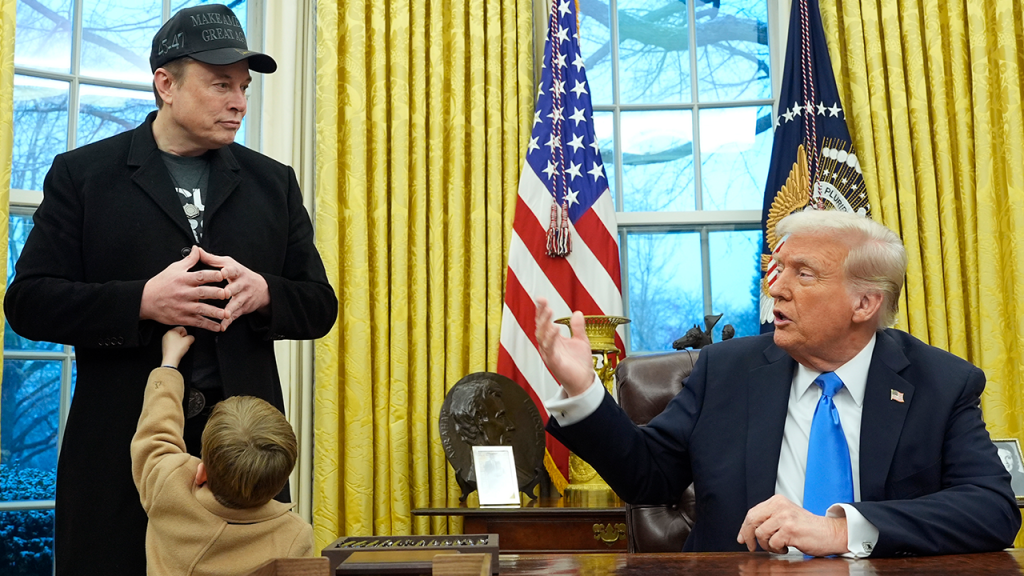A recent ruling by U.S. District Judge John Bates mandates officials from various federal agencies to testify regarding the Department of Government Efficiency’s (DOGE) access to sensitive government databases. This legal action, initiated by labor unions and advocacy groups, aims to prevent DOGE from implementing its agenda under Elon Musk. The groups allege that privacy concerns for federal workers are being compromised. The judge balanced the urgency of the situation by limiting the depositions while still allowing for some inquiry into alleged misconduct by DOGE officials.
| Article Subheadings |
|---|
| 1) Overview of the Court’s Ruling |
| 2) The Role of DOGE in Federal Operations |
| 3) Concerns Over Privacy and Data Access |
| 4) Stakes Involved for Federal Employees |
| 5) Implications for Future Government Policy |
Overview of the Court’s Ruling
In a significant legal decision, Judge John Bates has ordered officials from multiple federal departments, including Labor and Health and Human Services, to provide testimony regarding DOGE’s handling of sensitive data. The ruling came amidst a lawsuit filed by labor unions that seek to limit DOGE’s reach and influence in modifying federal efficiency protocols. The case raises critical questions about transparency and oversight in governmental operations led by private sector figures like Elon Musk. Judge Bates emphasized that it would be unreasonable to allow DOGE to present evidence without the plaintiffs being able to examine the factual circumstances surrounding this evidence.
The Role of DOGE in Federal Operations
The Department of Government Efficiency (DOGE), launched during the previous administration, aims to streamline federal bureaucracy, ostensibly harnessing private sector innovation to increase productivity within government operations. Elon Musk, recognized for his influence in technology and innovation, has been pivotal in shaping DOGE’s agenda. Advocates argue that DOGE could lead to significant efficiencies in government operations, while critics fear it may prioritize expedience over essential governance, significantly altering how federal agencies interact with their employees and constituents.
Concerns Over Privacy and Data Access
The lawsuit highlights serious concerns regarding privacy, alleging that DOGE officials have had unauthorized access to sensitive government databases. Labor unions assert that such access undermines the privacy rights of federal employees, placing sensitive personal information at risk. Previously, privacy practices in the federal sector have been governed by strict regulations designed to protect sensitive information. This case has unearthed debates about the balance between operational efficiency and the safeguarding of individual rights, a topic garnering scrutiny in various sectors across the nation.
Stakes Involved for Federal Employees
The legal proceedings surrounding DOGE have overarching implications for thousands of federal workers. The unions involved in the lawsuit argue that the policies being pursued may profoundly impact employee relations, job security, and privacy. The outcome of the court order could set a precedent for how government agencies operate in relation to their employees’ personal information. In light of new dynamics introduced by influential private sector figures, federal employees are left in a precarious position where trust in the processes meant to protect them could be diminished if stringent measures aren’t upheld.
Implications for Future Government Policy
The developments arising from this court ruling have significant implications for future government policies, particularly concerning the integration of private sector methods into public administration. The lawsuit against DOGE represents a pivotal moment whereby public-sector entities are navigating the fine line between adopting innovative practices while ensuring public accountability and maintaining stringent privacy standards. If DOGE’s actions go unchecked, it could lead to widespread changes in how government organizations function, potentially opening the door to further privatization of governmental operations, a scenario many advocates view with concern.
| No. | Key Points |
|---|---|
| 1 | Judge John Bates ordered federal officials to testify concerning DOGE’s access to sensitive databases. |
| 2 | The lawsuit is driven by concerns over privacy rights of federal employees amidst potential governmental reforms. |
| 3 | Musk’s DOGE aims to implement efficiency in federal operations, raising debates on privatization of government functions. |
| 4 | The ruling may set a precedent affecting future government policies involving private sector leadership. |
| 5 | Labor unions emphasize the need for accountability and protection against unauthorized access to employee data. |
Summary
The recent ruling by Judge John Bates symbolizes a crucial juncture in the relationship between government efficiency and employee privacy. As DOGE’s activities continue to be scrutinized, the broader implications for federal operations and workers’ rights will be a vital area to observe. The case raises fundamental questions about how the government balances the need for innovation with the necessity of protecting employee rights and personal information.
Frequently Asked Questions
Question: What is the Department of Government Efficiency (DOGE)?
DOGE is a federal initiative aimed at modernizing and streamlining government operations through efficiency measures often borrowed from the private sector.
Question: Why are labor unions concerned about DOGE?
Labor unions express concern that DOGE’s actions may undermine employee privacy and job security while prioritizing government efficiency at the cost of worker rights.
Question: What are the implications of the court ruling?
The court ruling may affect how governmental agencies operate, promoting accountability and potentially altering policies related to private sector involvement in public administration.


